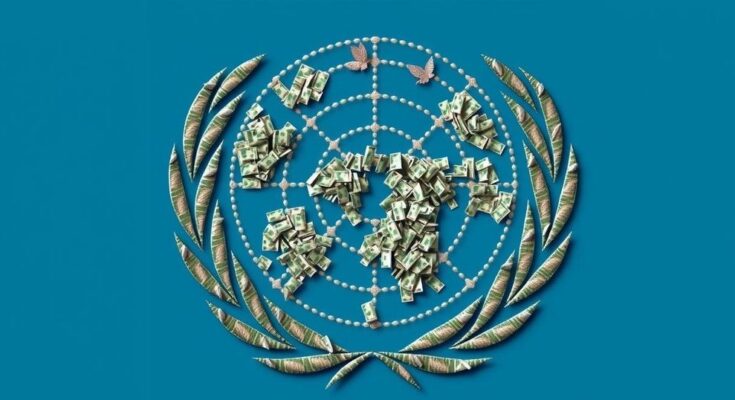Negotiators at the UN climate talks faced substantial challenges as developing nations rejected a rough draft proposal for climate financing. Accusations surfaced regarding an attempt by wealthier nations to diminish commitments. The discussions center around a demand for $1.3 trillion to support adaptation efforts against climate impacts, amidst heightened tensions and dissatisfaction among representatives from vulnerable countries. The final outcome of the negotiations remains uncertain amid calls for more inclusive and equitable terms.
During the ongoing United Nations climate negotiations, tensions have escalated as representatives from developing nations, particularly African nations and small island states, expressed significant dissatisfaction regarding the proposed climate financing agreements. A rough draft suggesting a $300 billion funding package, while an increase compared to prior figures, fell far short of the annual $1 trillion that experts advocate as necessary for developing nations to tackle climate change effectively. In protest against the inadequate proposals, members of the Least Developed Countries bloc and the Alliance of Small Island States withdrew from discussions, emphasizing their demand for a more equitable negotiation process.
The urgency of the talks was palpable as negotiators contended with tight timelines and high stakes. Allegations arose that affluent nations were attempting to exhaust developing countries into accepting insufficient financial commitments, a sentiment echoed by various representatives who highlighted the disproportionate power dynamics at play. The Panamanian chief negotiator described a strategic manipulation of time by wealthier delegations aimed at wearing down their negotiating counterparts.
Despite the overwhelming sense of frustration, some representatives retained a degree of optimism regarding the outcomes, underlining the importance of inclusive discussions that acknowledge and address the critical needs of vulnerable countries. The anticipated commitments range up to $1.3 trillion, required for adaptation measures to combat the increasingly severe impacts of climate change, which are disproportionately affected the very nations now facing funding disparities.
The history of the United Nations climate talks underscores a struggle for balance between the demands of developing countries for adequate financial support and the willingness of wealthier nations to meet those demands. Developing nations argue that commitments made at prior summits, such as the Paris Agreement, necessitate substantial financial backing to transition to sustainable energy systems and recover from climate-related damages. This year’s negotiations have revealed persistent fractures among negotiating blocs, emphasizing the urgent need for financial solutions to the climate crisis.
In conclusion, the current state of negotiations reflects a deep-seated rift between the financial aspirations of developing nations and the offers presented by wealthier countries. With ongoing talks failing to meet the essential funding levels necessary to combat climate change, the path forward remains unclear. Significant commitment from affluent nations is necessary to achieve a fair and effective agreement, allowing all parties to address the urgent challenges posed by climate change collectively.
Original Source: www.voanews.com




